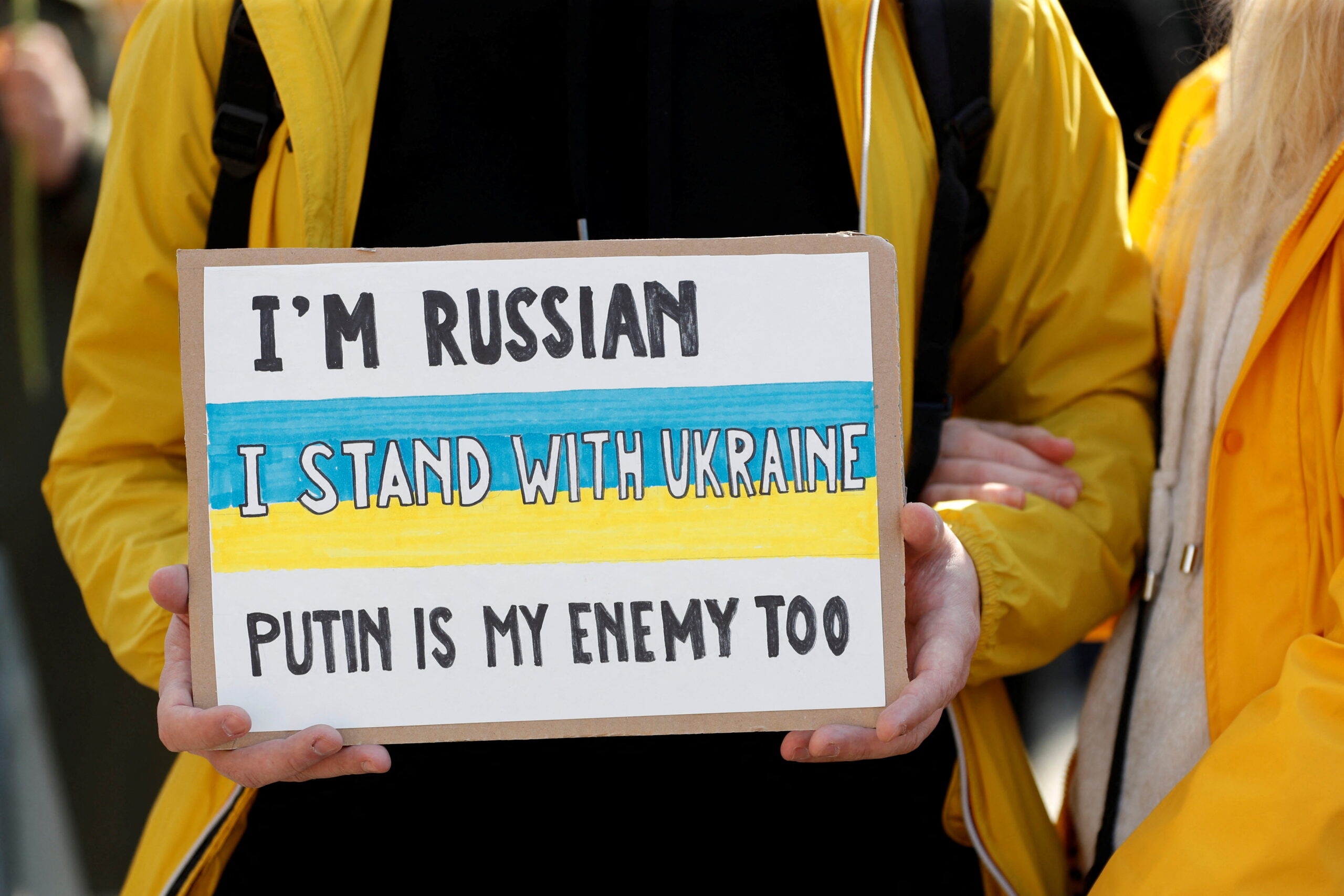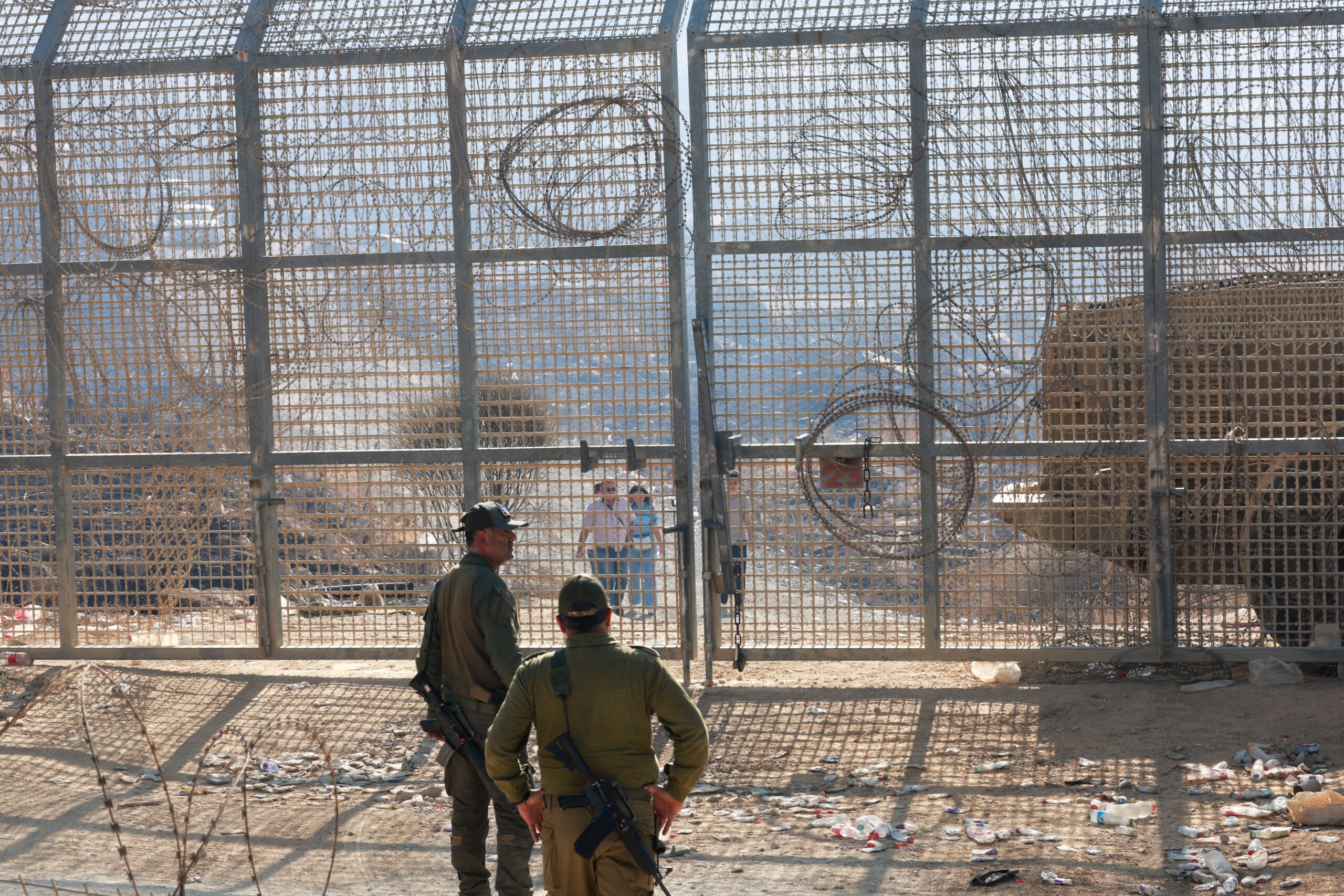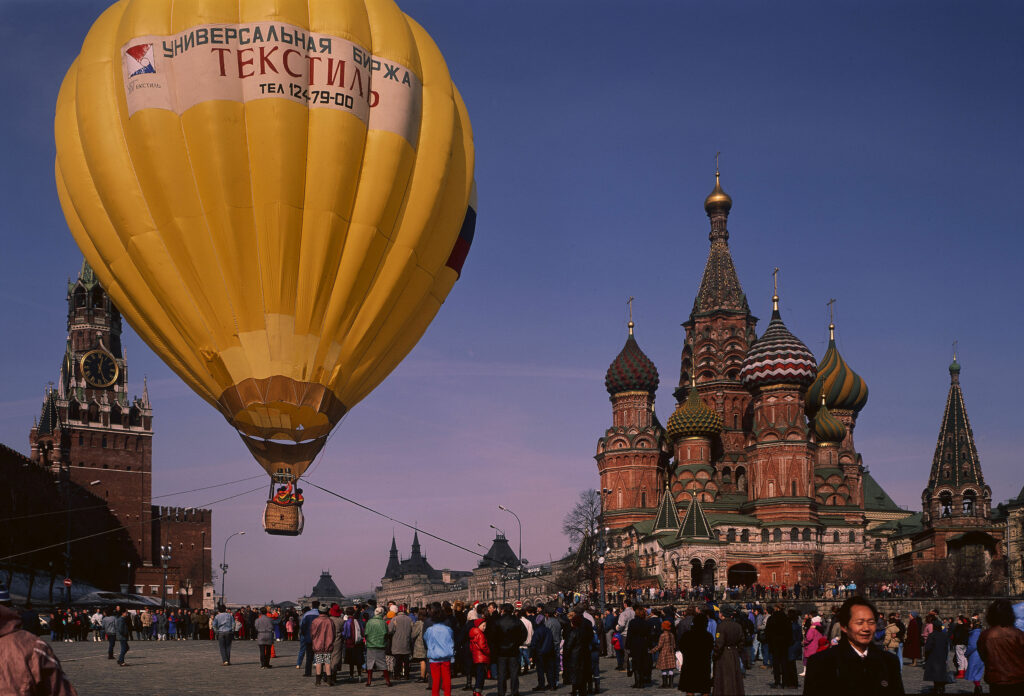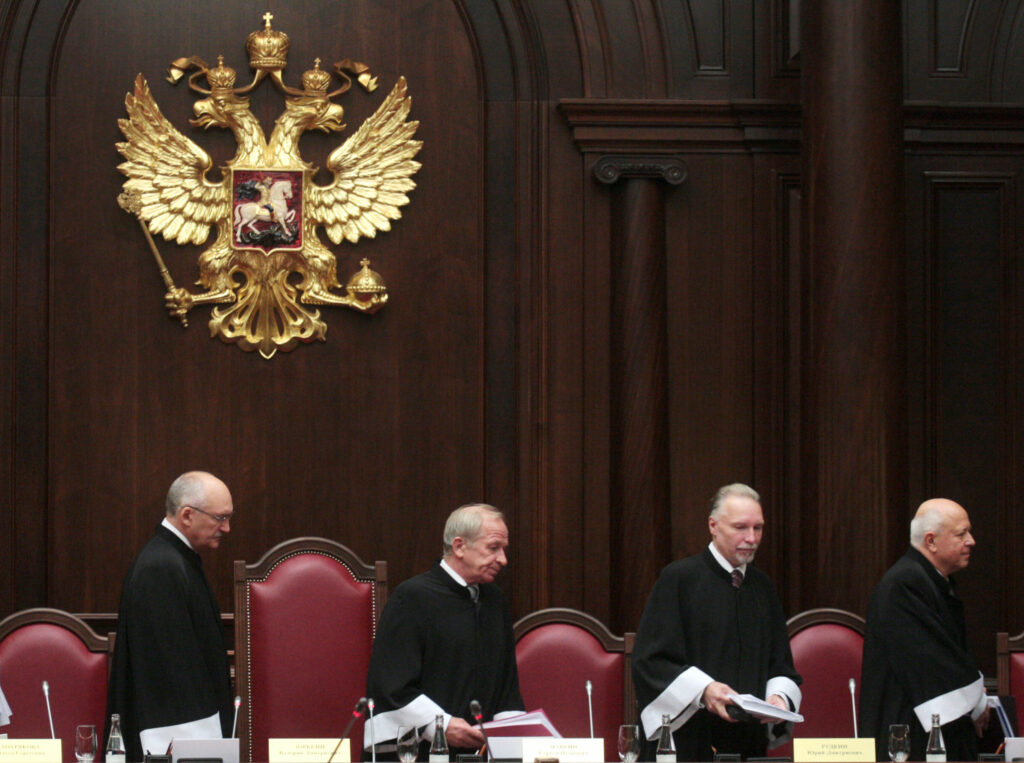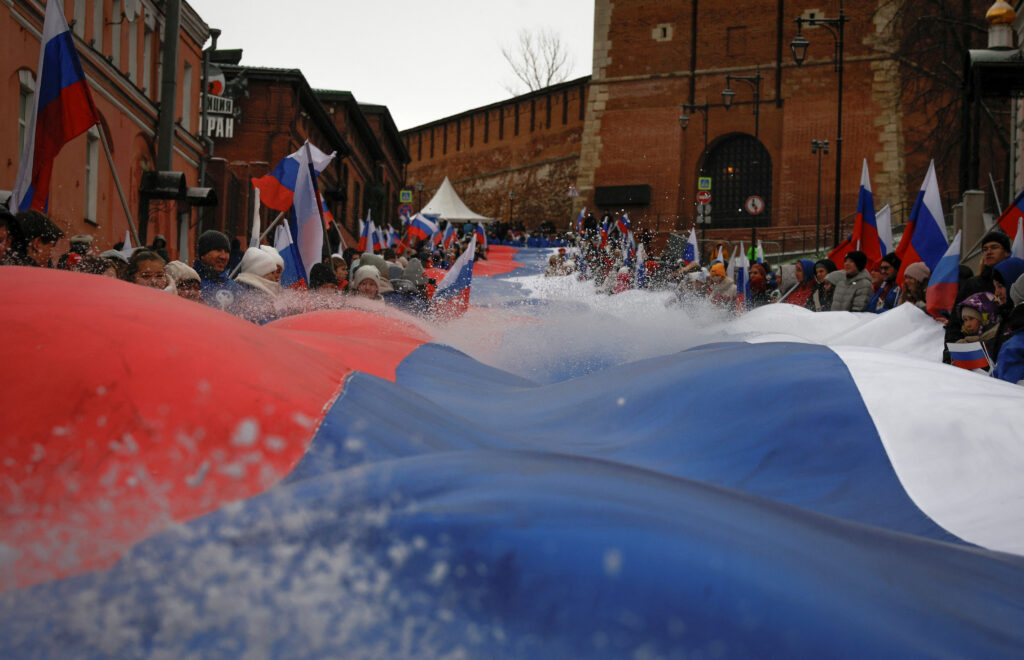One of the consequences of Putin’s invasion of Ukraine is a surging emigration of opposition-minded Russians. Already last year, a crackdown on Aleksei Naval’ny’s anti-corruption network drove many of the country’s most prominent political activists abroad. The brutal repression of protestors and imposition of strict censorship coming in the war’s wake are now deepening the exodus, with Russian communities growing by the day in Georgia, Turkey and elsewhere. Meanwhile, many Russians who have been abroad for years are vocally rejecting the war, while expressing disgust and shame at the xenophobic and militaristic Putin regime that has unleashed it.
How can Russians abroad influence politics back in their homeland? And how can states and civil societies of the «West» support the cause of Russia’s new wave of political exiles? As my research has shown, these questions constituted important political issues during the Cold War too. It is a useful exercise to revisit the involvement of Russian émigrés in the Cold War. Their activist techniques hold lessons for the present. It is true that current geopolitical, ideological and technological realities form a different context from that of the Cold War (a point to which I shall return). Still, the experiences of Russian political émigrés in the past provide some useful cautionary tales for Russians who hope to counter Putin from beyond the country’s borders.
Lesson one: Stay close to home
During the early Cold War, émigré anti-Soviet politics were mostly led by militant political organizations, some of which had their origins in the far-right politics of the 1930s and Nazi-dominated Europe. The Americans, via the CIA, supported these groups, assuming their brand of uncompromising anti-communism would strike a chord with the Soviet Russian population and destabilize America’s Cold War enemy. These efforts largely came to naught. Part of the problem was that the Soviet regime presented the émigrés as being out of touch with realities in Russia — a perception only deepened by their uncompromising anti-communist ideologies.
Russian exiles did however have some impact on the Soviet public over the longer term. In the 1960s, the émigré anti-communists largely turned away from trying to project their own ideological agendas across the Iron Curtain and instead came to focus on a more gradual strategy of supporting dissent within the Soviet Union. In particular, they carried out large-scale samizdat (foreign publishing) of the writings of Soviet citizens, which then found their way back across Soviet borders. Through these activities, the émigrés made it possible for Soviet citizens to discover a body of opposition thought, including the otherwise inaccessible literary masterpieces of Russian writers from Aleksandr Solzhenitsyn to Vasilii Grossman.
The mixed political record of émigrés during the Soviet period provide a useful reference point for Russia’s current wave of émigrés. Putin’s opponents should prepare themselves for the reality that their authority among the Russian public will diminish once they are abroad. As during the Cold War, political opponents of Putin outside the country are an easy target for Russian state propaganda, which will present them as unpatriotic and too cowardly to keep up the fight in Russia. Given this reality, today’s political émigrés should focus on maintaining contacts on the ground in Russia and seek to amplify strains of discontent that emerge in the domestic arena.
Lesson two: Avoid appearing «foreign»
The Russian émigrés of the Cold War were heavily dependent on Western governments for their anti-communist activities. Impoverished and lacking clear ways to contact their compatriots, Russian émigré anti-communists had little choice but to work closely with Western spy services. The CIA, and to a lesser extent the British MI6, spent years seeking to utilize Russian émigrés as both intelligence assets and agents for political warfare against the Soviet Union — but to little effect. The Soviet state spent considerable resources disrupting and demoralizing its enemies abroad, while entanglements with foreign spy services discredited them before the Russian domestic audience.
The most successful collaboration between Western governments and Russian émigrés appeared in the realm of Russian-language radio broadcasting. Through services like the BBC, Radio Liberty, or Voice of America, Russians abroad found a mechanism for fostering independent public opinion in the Soviet Union. The Russian diaspora provided the Soviet public with genuine news as well as entertainment through «the voices» in the last Soviet years, despite the mammoth efforts of the Soviet state to block their transmission. Nevertheless, links here with the CIA still carried risks. Radio Liberty and its sister service broadcasting to the satellite states, Radio Free Europe, took a hit when the Agency’s secret backing of them came to light in the late 1960s.
Putin’s opponents can learn from Cold War precedents. Already in past years, US efforts at democracy promotion have placed Russian opposition figures in a difficult position. The Putin regime has harassed and discredited them with labels them as «foreign agents» and fomenters of «Color Revolution.» One can only expect that such Kremlin tactics will continue if Russian oppositionists remain active abroad, especially in light of brutal reprisals against several figures beyond Russia’s borders in past years. Of course, it is inevitable that émigrés rely on foreign public opinion and governments for political influence. Yet Putin’s opponents should be wary of becoming too closely associated with Western objectives, instead pursuing activities they deem in the national interest with an eye to influencing their compatriots at home.
Lesson three: Beware of infighting
Political activities pursued in exile have often proven to be a breeding ground of demoralization and internal dissension. Cut off from their homeland and thrust into economic uncertainty or even penury, émigrés often wonder whether it is worthwhile or even possible to pursue politics from abroad. Along with endemic frustration come infighting and personal feuds. During the Cold War, exiled enemies of the Soviets were locked in a constant state of internal strife that was driven by their divergent backgrounds, ideologies and personalities. While realizing that strength came in numbers, Russian anti-communists failed to form a common front, a situation that bred disappointment and demobilization.
The new Russian émigrés will face similar pressures. Once separated from their familiar environment and facing the challenges of adapting to life abroad, feelings of futility will surely become apparent among the ranks of previously brave and motivated activists. The main groups of Russian opposition, those surrounding the exiled businessman Mikhail Khodorkovsky and the uprooted Anti-Corruption Foundation of Aleksei Navalny, have managed to work harmoniously to date. However, it is to be expected that divisions over political tactics and personalities that have posed problems for the Russian opposition in the past, for instance during the 2018 elections, will continue in exile. The Russian opposition will face an uphill battle to maintain a sense of purpose and unity during their unwanted sojourn abroad. Burying differences for the sake of unity should be a top priority.
This review of opposition to Soviet rule from abroad from decades past might seem to provide few grounds for optimism for Putin’s enemies who have been hounded from Russia. But the (at best) mixed record of Russian émigrés in opposing Soviet rule need not doom the political fortunes of Putin’s displaced opponents. The liberal and anti-corruption agendas of the current opposition are surely less toxic to wider Russian public opinion than many of the diverse ideological programs proposed by Russian émigrés in decades past. Aleksei Naval’ny’s decision to return to Russia (and near-certain arrest) in 2021 provides the Russian opposition with the unifying symbol of a figure determined to remain on Russian soil on all costs. The opposition in exile might also benefit from the highly unstable current situation in Russia. Most immediately, the current crackdown on free speech and political expression will convince some Russians to look to the diaspora for reliable sources of information and perhaps even ideas about the country’s future. Tellingly, BBC’s Russian service has seen a bump in their listenership in the past few weeks (granted, until the government imposed restrictions).
Perhaps most importantly, today’s Russia is not the tightly sealed information space of Soviet times. While it is unclear how far Russia’s international isolation will proceed, it is likely in today’s globalized world that cross-border Russian interactions will be far more extensive than during the Soviet period. Thousands of Russians are seeking VPNs to evade recently imposed restrictions on the internet, suggesting that the Russian state will have to engage in complex technological interventions that will drain state coffers just as the jamming of foreign radio broadcasts during the Cold War once did. An even greater challenge to imposing Soviet-style ideological uniformity stems from a more basic reality: Russian society in the past thirty years has been exponentially more pluralist than Soviet society ever was.
Russia’s new émigrés might retain some political influence in their homeland, or at least maintain a sense of momentum in preparation for the moment when political changes permit their return. But they would be well-advised to heed lessons from Russians’ long history of political exile, which all too often has been marked by political discord and futility. These histories also carry lessons for foreign observers, who should seek to avoid greeting the new wave of Russian political émigrés with either mistrust or unrealistic expectations, two classic errors of the Cold War West.
